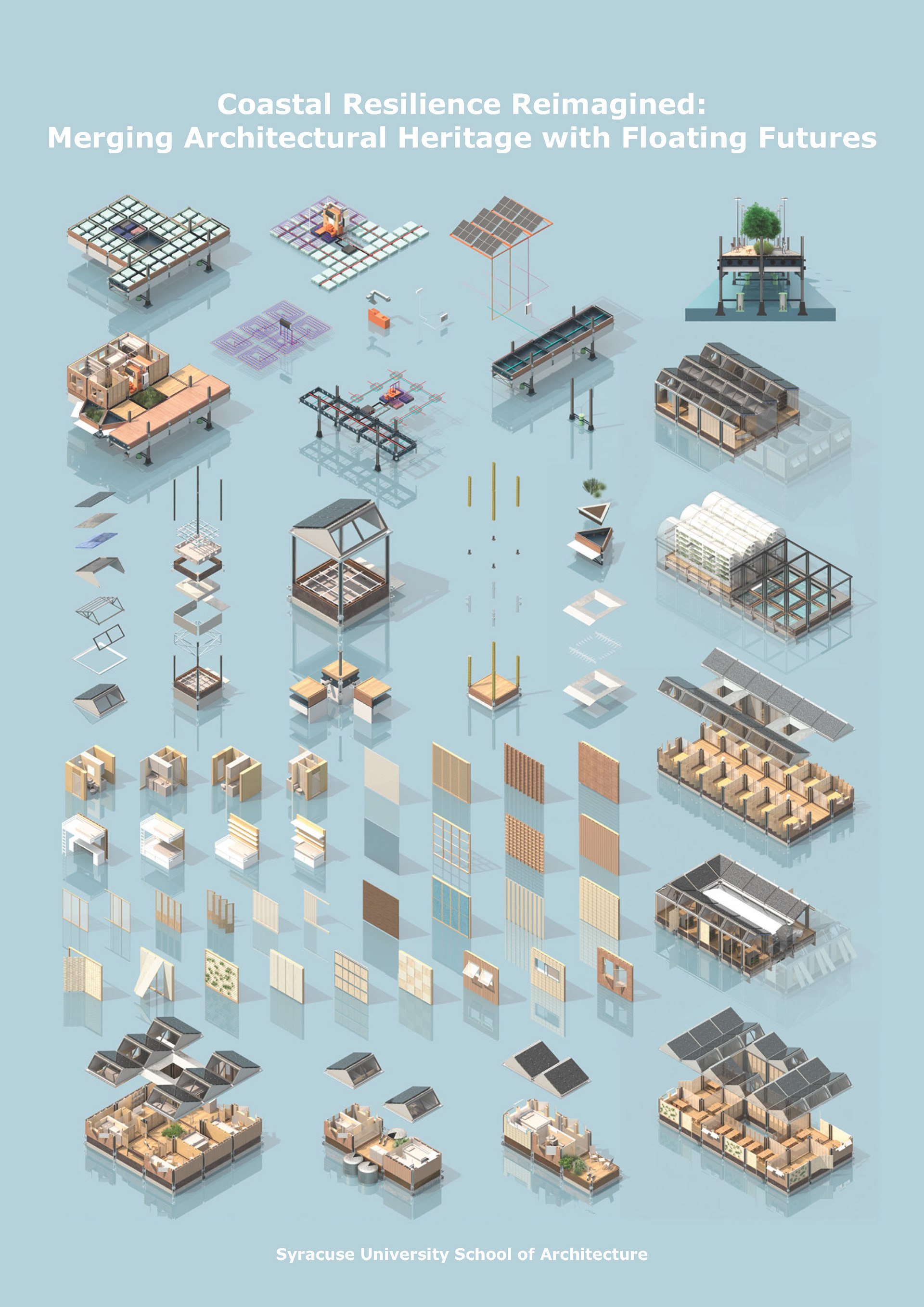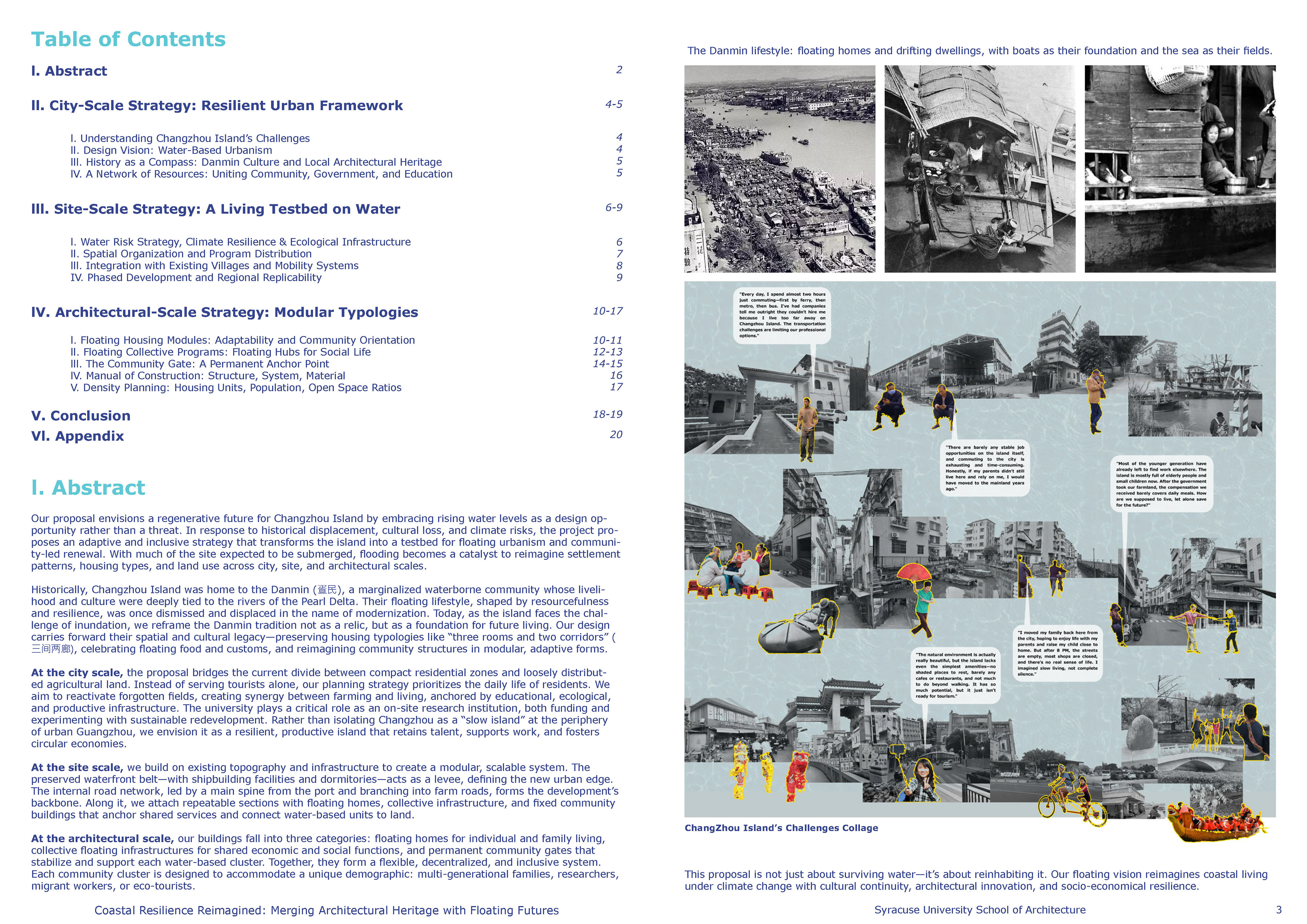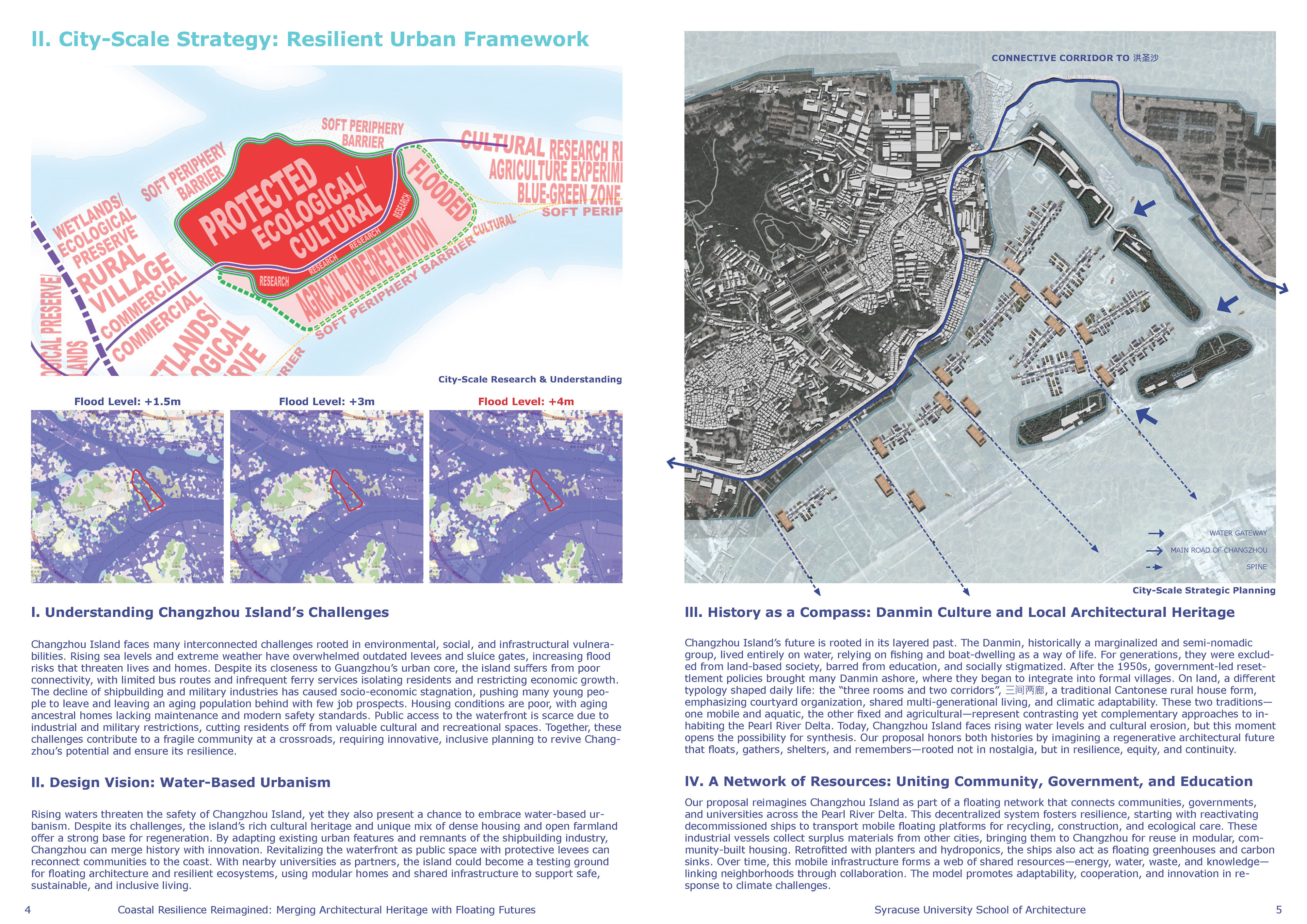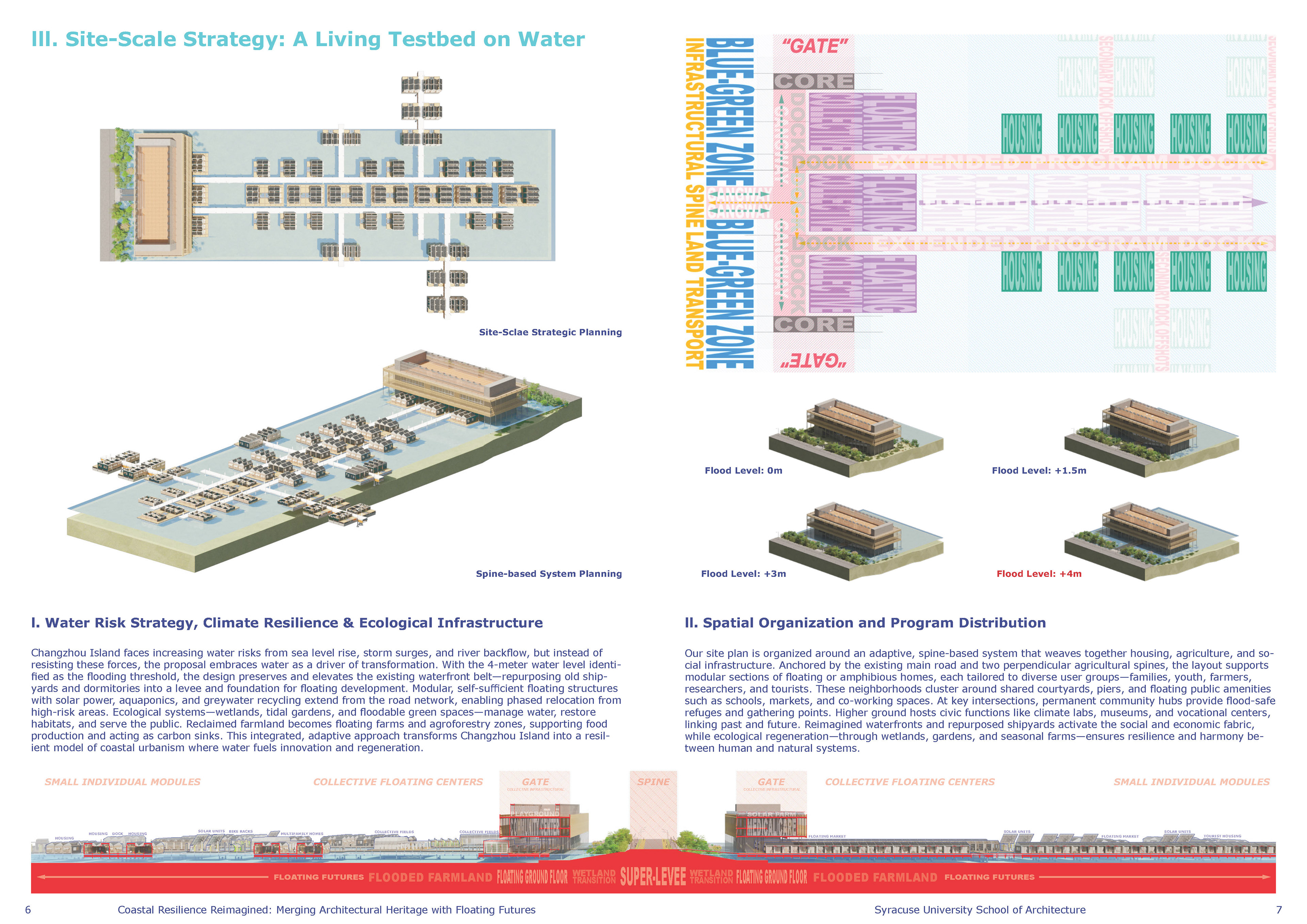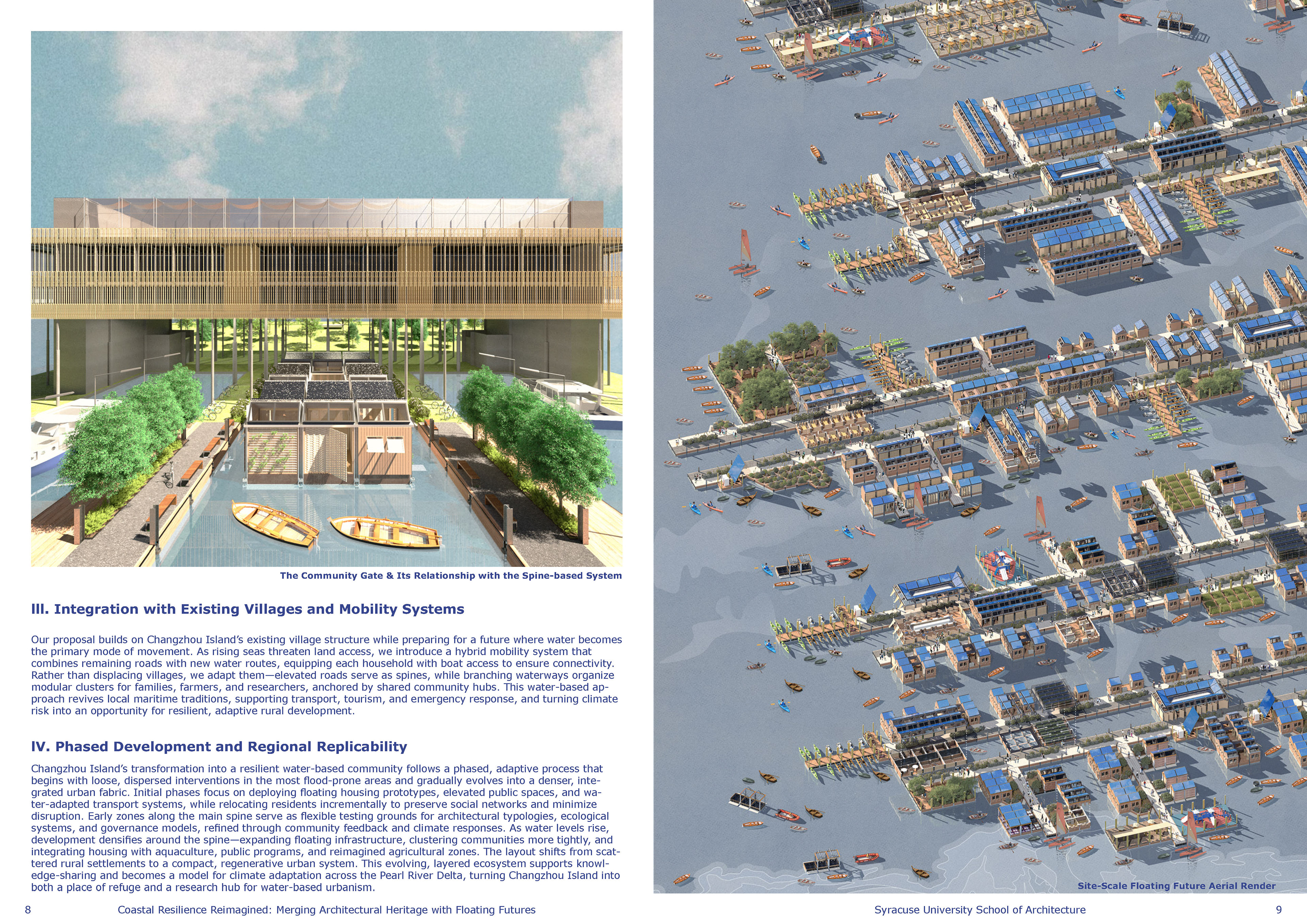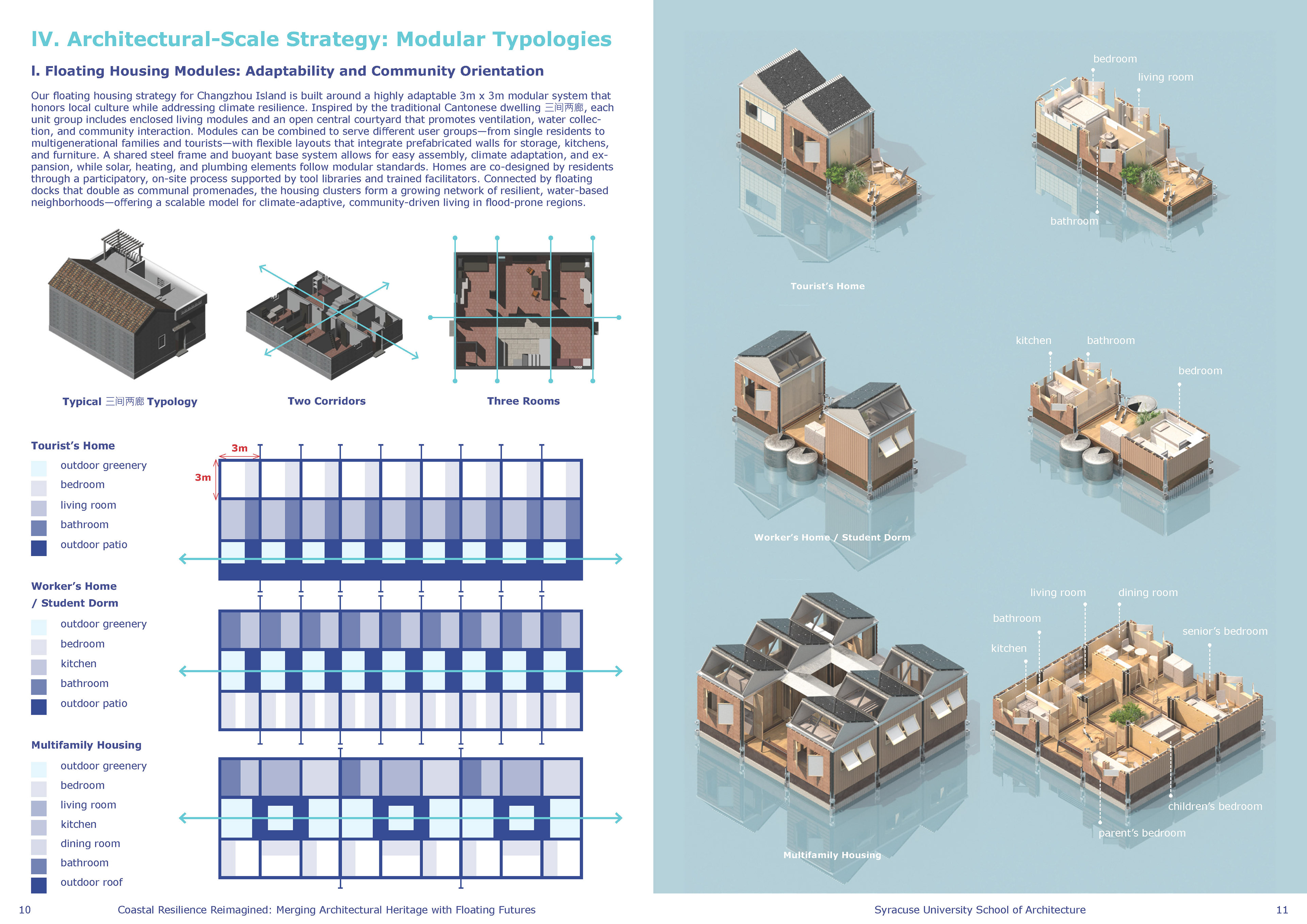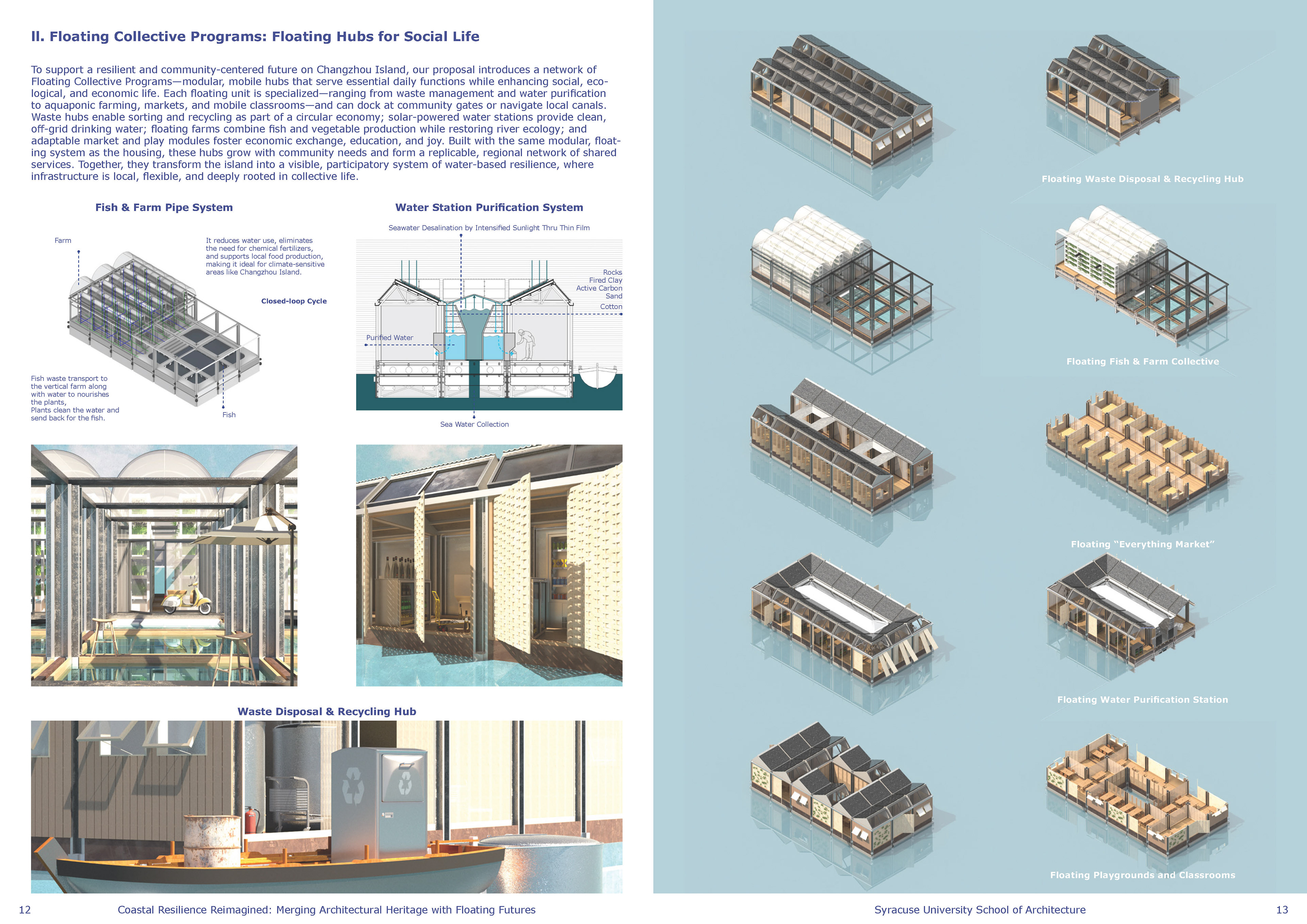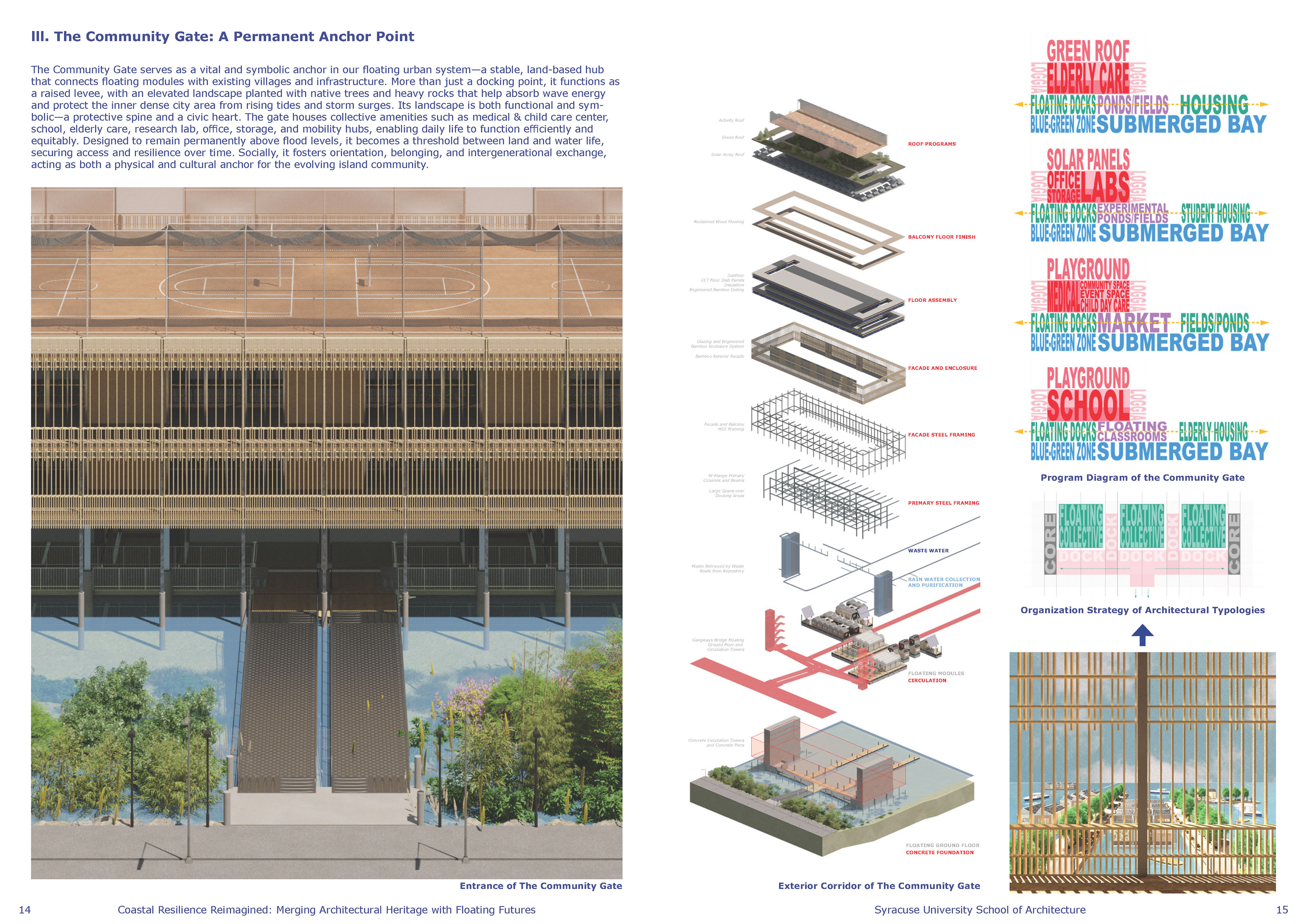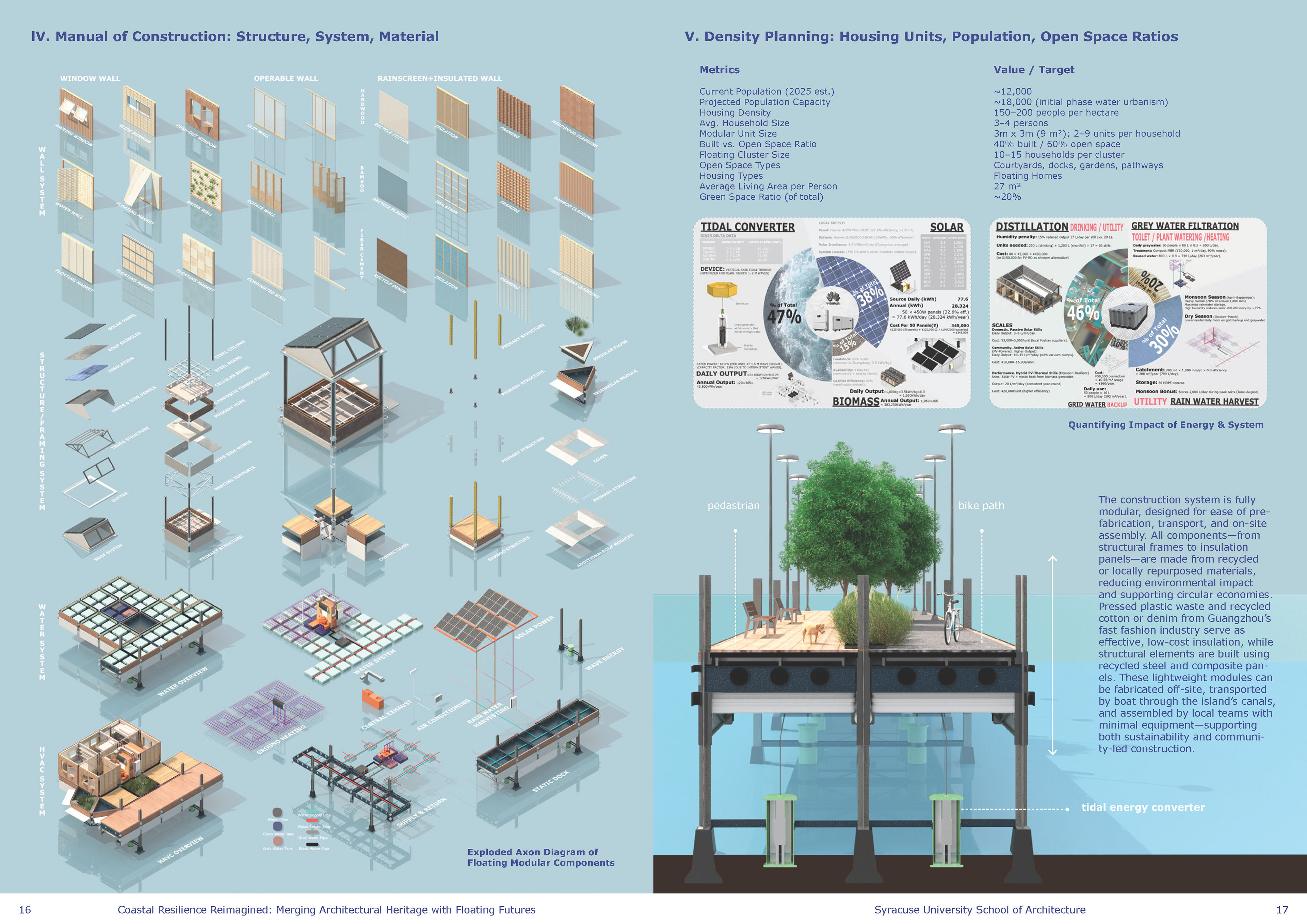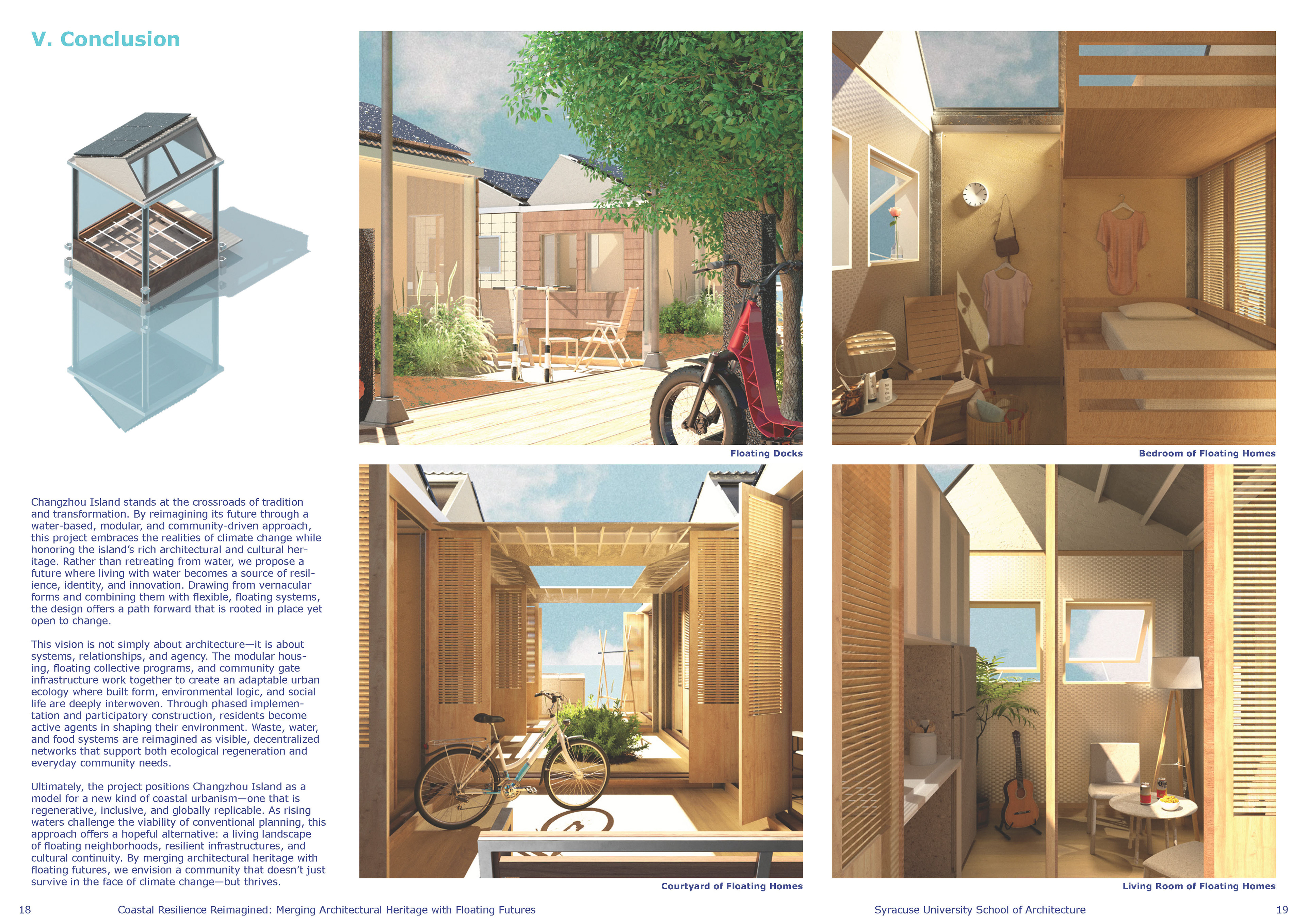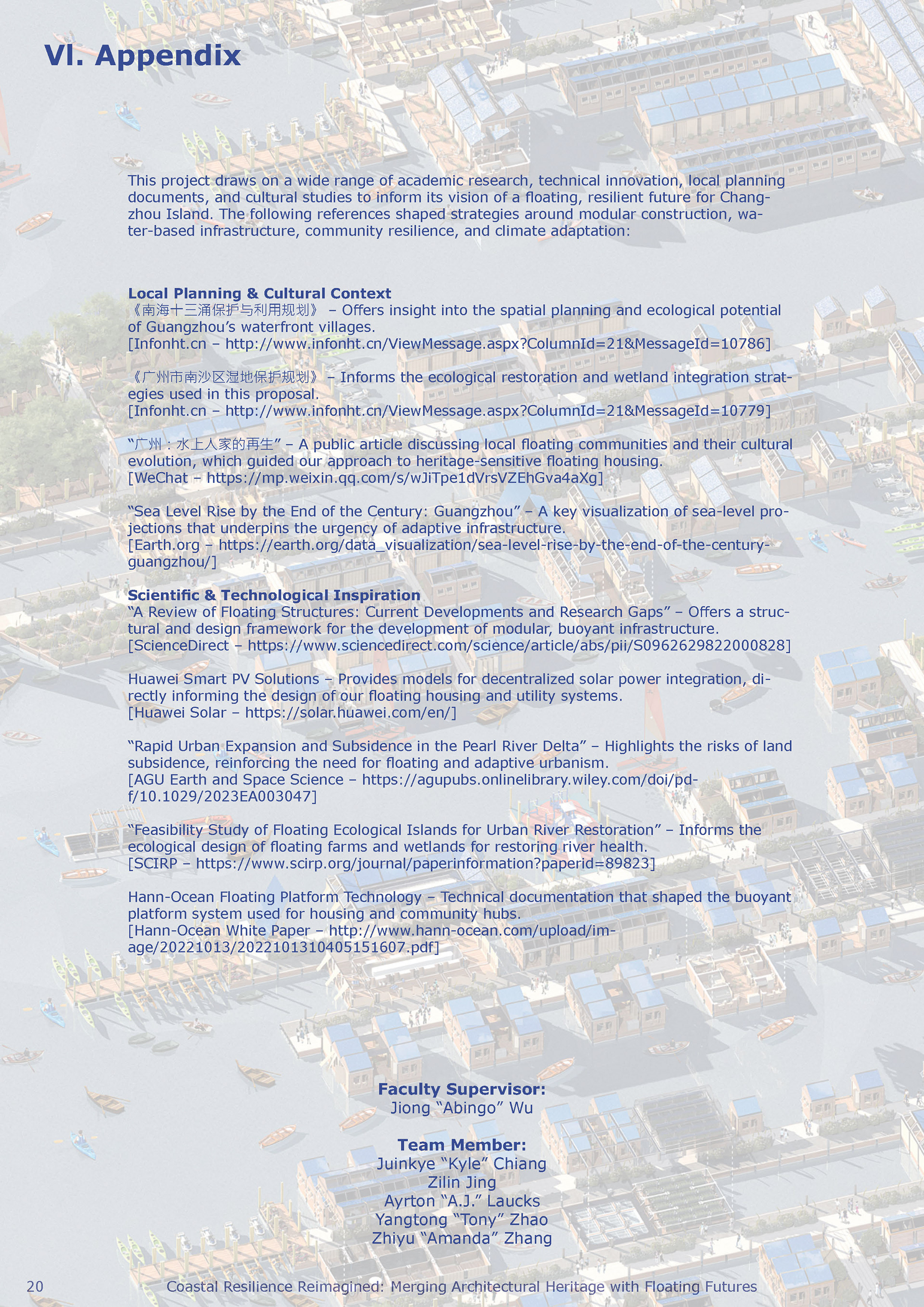Summer 2025
Location: Changzhou Island, Guangzhou, Guangdong, China
Advisor: Abingo Wu
Collaborator: Kyle Chiang, Zilin Jing, Tony Zhao, Amanda Zhang
Location: Changzhou Island, Guangzhou, Guangdong, China
Advisor: Abingo Wu
Collaborator: Kyle Chiang, Zilin Jing, Tony Zhao, Amanda Zhang
Our proposal envisions a regenerative future for Changzhou Island by embracing rising water levels as a design opportunity rather than a threat. In response to historical displacement, cultural loss, and climate risks, the project proposes an adaptive and inclusive strategy that transforms the island into a testbed for floating urbanism and community-led renewal. With much of the site expected to be submerged, flooding becomes a catalyst to reimagine settlement patterns, housing types, and land use across city, site, and architectural scales.
At the city scale, the proposal bridges the current divide between compact residential zones and loosely distributed agricultural land. Instead of serving tourists alone, our planning strategy prioritizes the daily life of residents. This project aims to reactivate forgotten fields, creating synergy between farming and living, anchored by educational, ecological, and productive infrastructure. The university plays a critical role as an on-site research institution, providing funding while experimenting with new sustainable technologies. Rather than isolating Changzhou as a “slow island” at the periphery of urban Guangzhou, we envision it as an island that retains talent, supports work, and fosters circular economies.
At the site scale, we build on existing topography and infrastructure to create a modular, scalable system. The preserved waterfront belt—with shipbuilding facilities and dormitories—acts as a levee, defining the new urban edge. The internal road network, led by a main spine from the port and branching into minor roads, forms the development’s backbone. Along the levee, we attach repeatable floating homes, collective infrastructure, and fixed community buildings that anchor shared services and connect water-based units to land.
At the architectural scale, our buildings fall into three categories: floating homes for individual and family living, collective floating infrastructures for shared economic and social functions, and permanent community gates that stabilize and support each water-based cluster. Each community cluster is designed to accommodate a unique demographic: multi-generational families, researchers, migrant workers, or eco-tourists.
This proposal is about re-inhabiting water. Our floating vision reimagines coastal living under climate change with cultural continuity, architectural innovation, and socio-economical resilience.
Competition Booklet:
